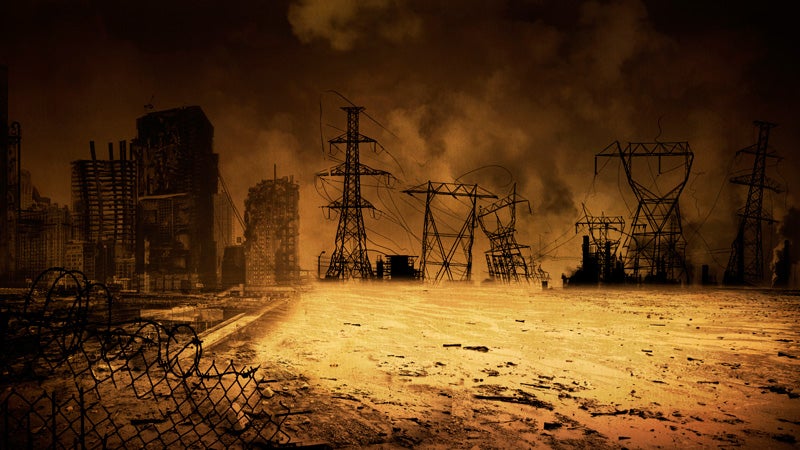As you burn fossil fuels on your morning commute and forget to toss your empty bottles in the proper bins, consider this: These days of relative luxury might be numbered. Rapid population growth, depletion of natural resources, and growing economic inequality could spell the end of civilization as we know it, according to led by University of Maryland professor Safa Motesharrei and funded by NASA.
Motesharrei and his colleagues tested numerous theoretical scenarios to see how our industrialized civilization might respond, and the results weren’t promising. The most likely outcome goes something like this: Society breaks down as the population grows and consumes Earth’s resources until they’re nearly gone. That’s where the growing economic divide will come into play. “Elites” and “masses” will emerge, with the elites responsible for overconsumption—but also capable of buying what little scarce resources exist. Although economic superiority might allow the elites to continue business as usual for some amount of time, their demise would eventually follow the extinction of the masses.
This might sound like science fiction—or propaganda by economic liberals—but science and history support Motesharrei’s claims. The professor developed a model called HANDY (Human And Nature DYnamics) to research possible outcomes. HANDY, which is based on a predator-prey model, characterizes humans as predators and natural resources as prey. From there, diagnosing the rate of consumption is simple—and jarring, because of how far our current rate of consumption strays from equilibrium.
These findings have historical precedent as well. “The fall of the Roman Empire, and the equally (if not more) advanced Han, Mauryan, and Gupta Empires, as well as so many advanced Mesopotamian Empires, are all testimony to the fact that advanced, sophisticated, complex, and creative civilizations can be both fragile and impermanent,” Motesharrei writes in the report.
This doomsday scenario, however, is far from inevitable. “Collapse can be avoided and population can reach equilibrium if the per capita rate of depletion of nature is reduced to a sustainable level, and if resources are distributed in a reasonably equitable fashion,” Motesharrei adds.
This scientist isn’t alone. As the environmental movement grows, some of its leaders have cautioned a narrow focus on recycling and conservation, reminding people that sustainable lifestyle choices will hardly matter if there simply isn’t enough food to go around due to overpopulation. One prominent academic, Alan Weisman, writes about the issue
Oh, and if you’re counting on space travel to get you off our planet once it becomes a wasteland, remember that interstellar adventuring is still a decidedly mixed bag. Earlier this week, NASA announced plans for International Space Station astronauts . But they might be too busy dealing with life-threatening risks. In a moment startlingly reminiscent of Gravity, ISS astronauts had to avoid a piece of space junk headed straight for it. NASA later determined the debris wouldn’t have posed a threat, but taking care of Earth might be easier than learning to deal with these types of cosmic crises.
Whatever happens, stay calm. According to some of our favorite alt-rockers, feeling fine in the face of catastrophe is totally possible—and surprisingly tuneful.


